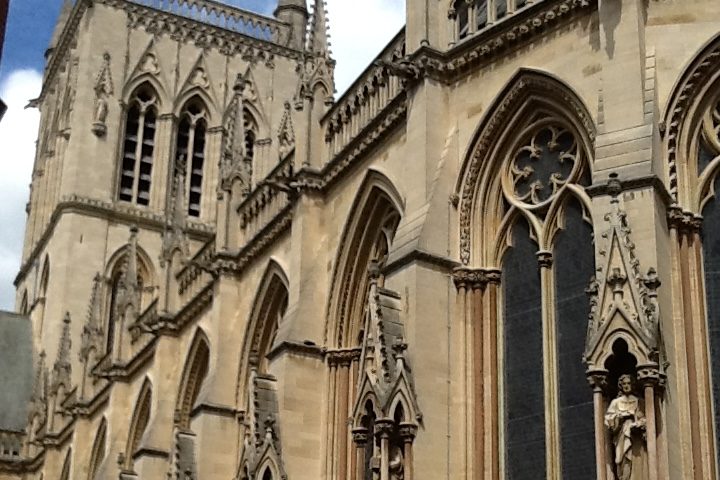On the Road to College with Betsy Woolf – The University of Cambridge

Ah, Cambridge. It’s the quintessential charming English town, with rambling streets filled with quaint stores, restaurants, tea shops, taverns, even a canal, with most colleges clustered in and around central Cambridge.
And of course, tourists. Like Oxford, Cambridge is a college town as well as a tourist town, but once one steps onto the grounds of the individual colleges, the hustle and bustle fade away, and all that is left is the magnificence of the architecture and the close, personal education that takes place within the college walls. The undergraduate population ranges from around 200 to 600, depending on the individual undergraduate college, of which there are 29. Three of the colleges are all female. Students study in one of the individual colleges for three years but graduate from the university as a whole.
I was privileged to have met with professors in three of the colleges: Trinity College, Homerton College, and Queen’s College. Both Trinity and Queen’s are located in the heart of the old town; Homerton is more suburban. Classes at the university consist of lectures that encompass students from all of the colleges within the university and smaller seminars, called supervisions, where students meet one or one or two on one or three on one with an individual professor or supervisor. Large lectures across the colleges could be only 30 or 40 students. The school year is divided into 3 terms, 8 weeks each. There are six general areas (schools) of study within the university – arts and humanities, biological sciences, clinical medicine, humanities and social sciences, physical sciences, technology; each has a council that includes representatives of its faculties and departments, and all are represented on the university’s general board. Faculties organize the teaching and research; the subdivision of the faculties are departments.
Admission is selective. A student must apply to a particular college within the university by completing the UCAS application (the universal application in the UK) and the Cambridge Online Preliminary Application for students living outside the European Union. There is also a Supplementary Application Questionnaire (SAQ) that is emailed to the student after submission of the UCAS application. If a student does not have a preference regarding a college, he or she can make an open application, and the system will allocate the application to a particular college. If the college to which a student has applied or allocated is unable to offer a place, then the student is placed into the Winter Pool. Over a three day period in early January, colleges seeking additional applicants review applications and can either re-interview or offer a place.
The Cambridge colleges focus on APs and SAT subject tests: Typically a score of 5 in five AP tests or a minimum score of 700 in relevant SAT subject tests or an ACT of 32 with a score of 5 in AP tests and/or SAT subject tests at 700 or better.
Copyright 2015. Betsy F. Woolf. All rights reserved.

